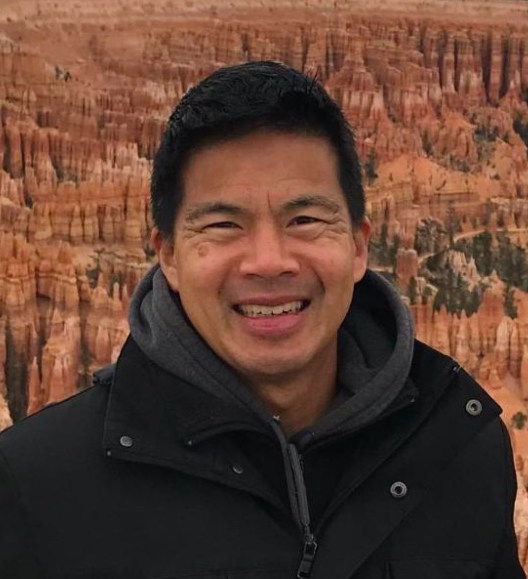Tom Fong: The Doctor You Want Beside You When You Confront Cancer

Dr. Fong spends time in nature to de-stress and bond with loved ones.
Growing up in the Baltimore suburbs, Tom Fong was one of the two children of his parents who were immigrants from Hong Kong. Although he never fully appreciated all their sacrifices, he says they definitely etched a solid work ethic in him. He laughs, “We would get these homework passes in elementary if we got a good grade but my mom never let me use them. I probably had a couple hundred unused ones all over my house at the end of my elementary career.”
His father told him that he should become a doctor but Tom pushed back. He says, “I thought I would be giving into the Asian stereotype of tiger parents and the glorified job of a doctor.” Fate would have it that he eventually became a general oncologist and is a humble, heartfelt doctor who anyone would be blessed to have when confronting death.
While his job is one half of him, the other half is his family: a wonderful bundle of a wife and four young kids. His expression tightens as he remarks, “Before I was married, coming back to an empty apartment after a grueling, emotional day at work was hard, very hard.” Nowadays, his end-of-workday therapy ranges from playing football with the kids to making them giggle at his dad jokes.
Being an oncologist isn’t easy work. What made you decide to choose this profession?
I graduated from Columbia with a policy analysis degree and went to WashU in St. Louis for my medical school, residency, and fellowship. But the turning point was my fourth year in medical school. I had already narrowed down that I wanted to go into internal medicine and there was this attending physician who I looked up to. He was honest, relatable, and a genuinely compassionate person – you could see the love that patients had for him when bringing homegrown fruits or a warm embrace. I learned that when you remember that you are a human, no matter your vocation, that is when you bring the best out of yourself and others.
Has the pandemic changed anything?
Cancer doesn’t wait for the patient. Sure, things have slowed down a bit and there’s a lot of safety measures, but we’re still working day in and day out to ensure the best quality of care.
Can you tell me about any patients you remember?
All of my patients have impacted and shaped me into who I am today. I still remember this old man who was a 103; always sharply dressed and had his little notebook. We joked that he was trying to beat Methuselah’s record for the oldest person in history (Methuselah, in the Bible, was supposed to live till 969 years). He fortunately responded well to treatment. On the other side, there was a teenage girl who I’ll never forget. She had a very aggressive condition, yet always had a smile on her face, even to her death.
What are some lessons your work has taught you?
An important perspective that’s been instilled in me is one of an open heart and mind. You never know who or what these folks have been through, so you want to just listen to their story and let them know that you will be there every step of the way.
Right now we live in challenging and divisive times, and we can forget, as a society, that we are all part of humanity. Life isn’t guaranteed and there is no time for petty strife. You know, cancer is the great equalizer – it doesn’t care about your age, political preference, race, gender, wealth – it affects everyone. It helps you understand that everyone deserves compassion and I think our world needs to hear this message.
It still rings true in the present. Oncology is a wild ride of emotions from elation to despair. All those things are part of their life journey that I just feel honored to be a part of, and to help guide them through. There is going to be suffering and death and it can be burdensome, but it also is a privilege to stand beside someone in their moment of need and be a strong, comforting voice.
